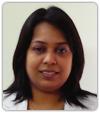Have Liver Problems. Suffer Swelling In Legs And Dry Mouth. Taking Nonadol Amlodipine Furosemide. Suggest To Stop Blotting Constipation?

Cut down on sodium.
Detailed Answer:
Hi,
Since you have cirrhosis of liver, you need to eat a special diet that protects your liver from working too hard and helps it to function as well as possible. Your swelling of legs every night with a dry mouth indicates that you are taking too much sodium in your diet, which retains water causing swelling and also makes you feel thirsty. Bloating, constipation and belly ache also suggest that your diet is not suiting your liver.
There are certain foods that you should avoid:
1) Sodium: Sodium causes fluid retention in the body, and this can cause a lot of swelling. Avoid eating salty foods or foods that contain sodium products. Avoid processed meats, vegetable juice, canned vegetables, processed and frozen meals, potato chips and packaged snacks, soy sauce and teriyaki sauce, packaged soups, and table salt.
2) Caffeinated beverages: Caffeine is not healthy for you, especially when you are suffering from a liver disease such as cirrhosis. Also limit fruit juices, soda and gelatin.
3) Raw foods: Limit your daily intake of salads and raw vegetables as your bloating indicates that you are finding it difficult to digest these.
4) Alcohol: Alcohol is poison for your liver. It is good that you have stopped drinking completely.
5) Fats and proteins should be cut down as per your doctor's recommendations, which will be on the basis of your current liver function status. Usually about 1 gram of protein per kilogram of body weight is advised, but the amount of fat and protein to be taken, should be discussed with your hepatologist so that they are neither too much or too less. While maintaining a low protein diet, you should also try to increase the amount of carbohydrates in your meals. Avoid consuming fats and use healthier fats such as olive oil and rapeseed oil. Use low fat alternatives for mayonnaise and other such high calorie fatty foods.
Here’s a sample diet for liver cirrhosis:
Breakfast: Eat low protein sandwiches with thin slices of chicken or XXXXXXX and salads such as cucumber, tomatoes, carrots, cabbage, sprouts or lettuce. You can also consume a bowl of cooked oats with milk, a small fruit and a cup of orange or carrot juice.
Mid-day meal: Snack on a sandwich made from morning leftovers. Use peanut butter instead of regular butter. A cup of low fat yogurt and two arrowroot biscuits is also a good mid-day snack option.
Lunch: A bowl of fresh fruits or alfalfa sprouts, whole wheat bread, a cup of boiled or sautéed vegetables such as broccoli, beans and carrots, a chicken breast and a cup of yogurt.
Evening snack: A small fruit and a cup of milk.
Dinner: Fried rice with vegetables made from brown rice, cottage cheese and boiled vegetables like cauliflower and mashed potatoes, half a cup of pineapple and tossed salad.
Try making changes in your diet and see which foods are easier on your liver and also are liked by you. That should help in decreasing your bloating and discomfort. If constipation does not improve, you may need to take a laxative after discussing with your doctor. Usually lactulose is preferred.
Hope this helps you.
Best wishes.
Dr Preeti Parakh
MD Psychiatry
Answered by

Get personalised answers from verified doctor in minutes across 80+ specialties



